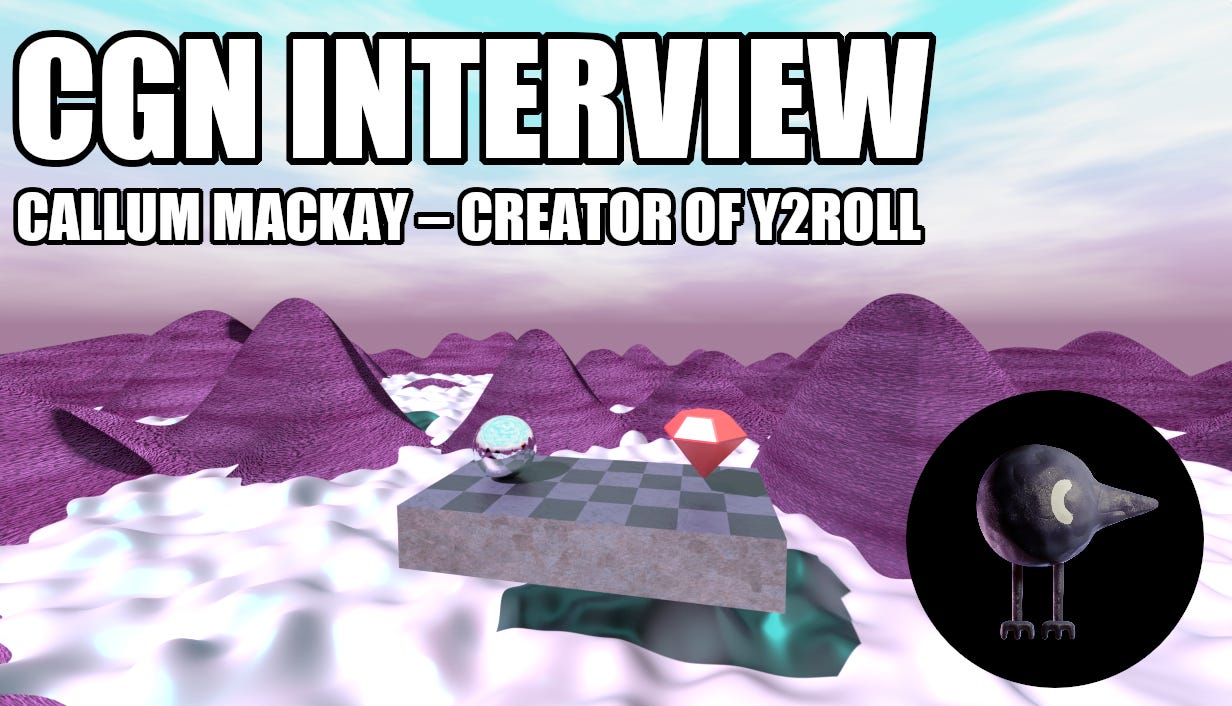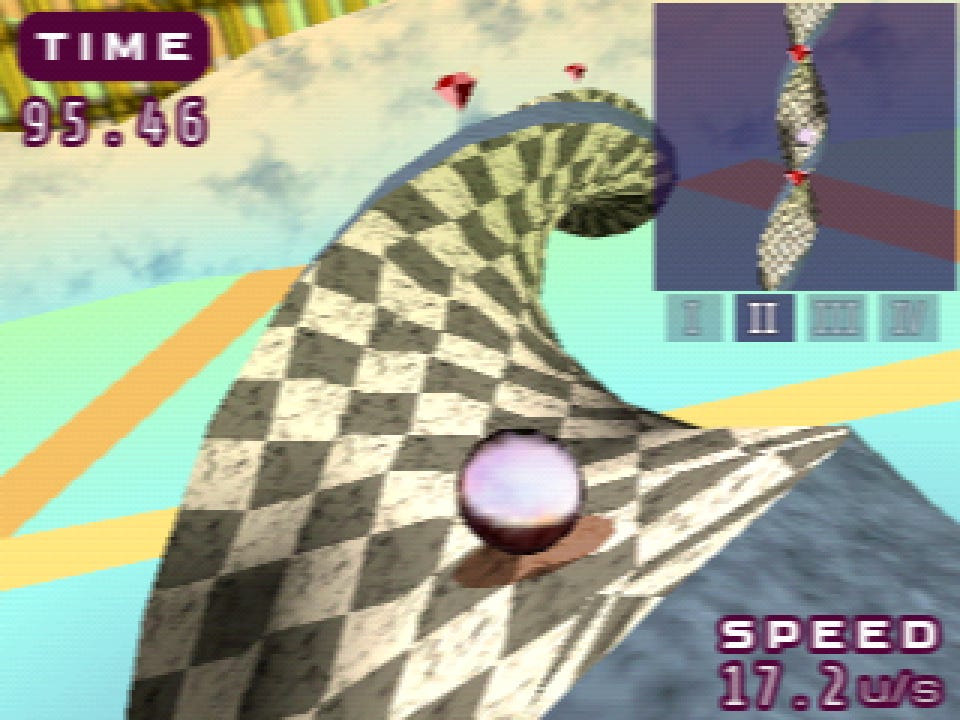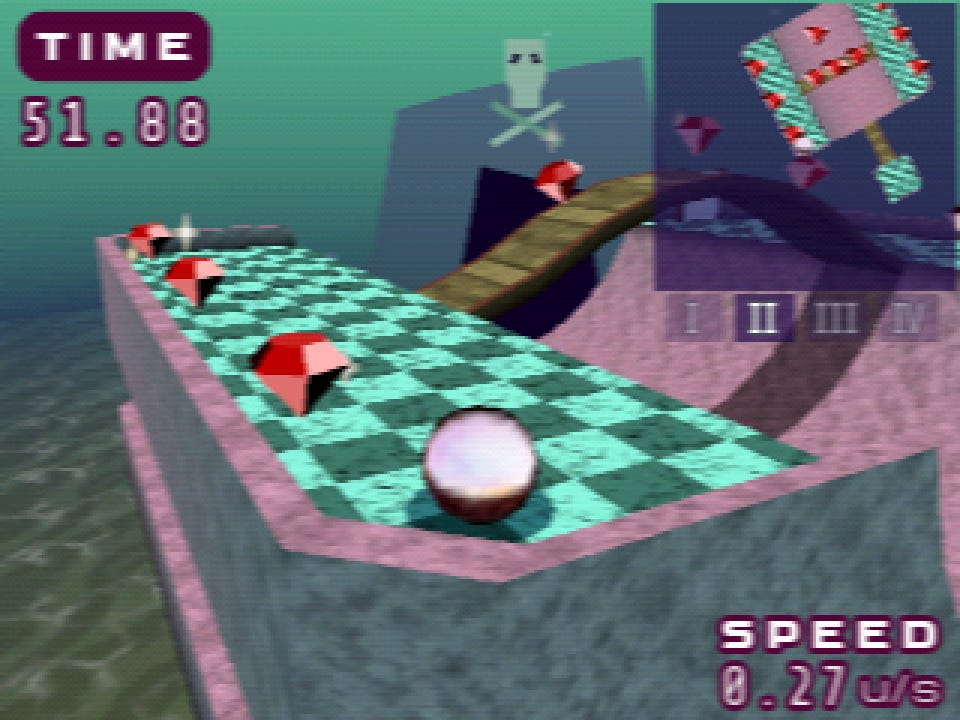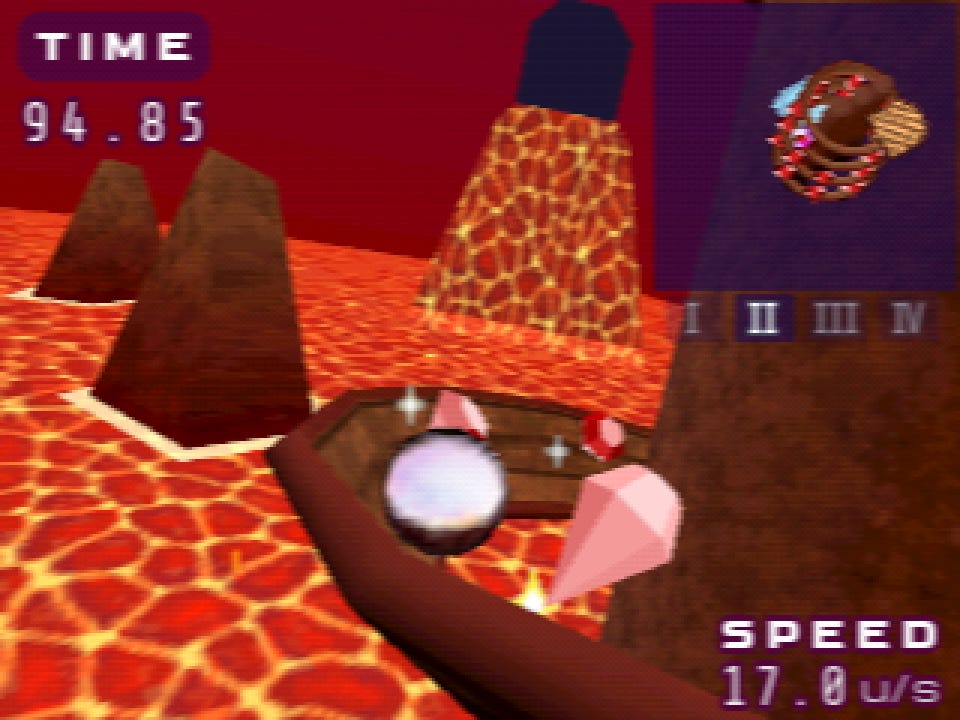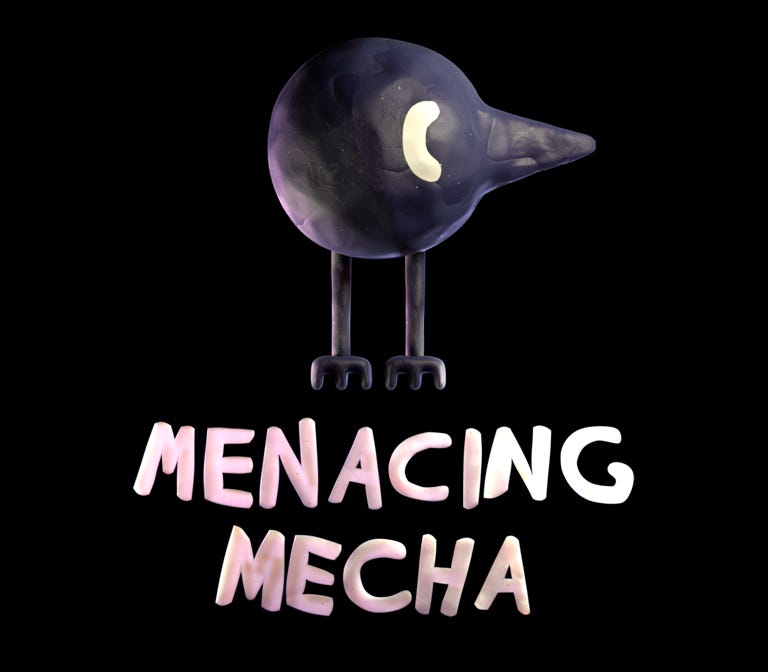Over two years in the making, Y2ROLL is a heartfelt tribute to the Super Monkey Ball series and the turn-of-the-Millennium gaming aesthetic.
Solo indie dev Callum Mackay generously spared the time to talk about his creation, and about the nuts and bolts of reanimating a dead genre...
Can you tell us a bit about your background? How long have you been making games? What ideas have you explored in your earlier, smaller projects?
I've been making games for roughly 7 years now, but only professionally since 2021.
A lot of my more successfully earlier projects were experimenting with low-res 3D in Godot, which was absolutely a straight line to Y2ROLL.
Why a Super Monkey Ball clone, and why now?
I wanted to make a Monkey Ball clone as my first game as it's very easy to scale production. You get to fully complete gameplay very early (so that all the difficult stuff is out of the way and you have a full handle on how things play), and then from there it's just scaling the amount of levels there are.
Additionally, in terms of trying to sell it, it's a weirdly undeserved genre for how well liked Monkey Ball is. And whenever there is an indie Monkey Ball clone, in tends to be something only existing Monkey Ball experts can get something out of, limiting it's reach.
How would you describe the aesthetic of Y2ROLL? What games, or other media, have you drawn on as the strongest influences?
The main basis of the aesthetic is intelligent jungle/atmospheric DnB, especially the early 3D rendered album art. Initially the sound was much closer to this, but I'll get to why that changed.
Outside of this, late-era N64 games – especially anything that heavily uses vertex colour gradients.
Finally, Super Monkey Ball itself, but at a distance. In general I didn't want to aim too closely at just making Super Monkey Ball again, as you just end up making a lesser version of it.
In what ways will Y2ROLL surpass the classic ball-rolling games of yore?
I wanted to focus a lot more on individual level replayability, as levels are the core content, so you want to get as much as you can out of them.
Additionally, I wanted to give a lot of focus to the genre beginner experience, as IMO, the classics get a little too hard too quickly. Which gives beginners not that much game before they hit a wall.
And finally, while it's not implemented yet, Steam Workshop support to ease the sharing of custom levels.
You've sub-contracted the music on Y2ROLL; how did you choose your composer? What's it like trusting someone else with such a critical part of the production?
So, initially I didn't have plans to contract any part of the game. Part of the reason I committed to begin working on the game was I came across a royalty free music artist who made – no exaggeration – perfect music for the aesthetic I was going for.
Cut to about a month or two before launch, and I suddenly find out that all the music had been relicensed to no longer allow commercial usage.
Luckily, I'd previously received a cold email from artist Qteku, who specialises in the kind of vibe I was going for. I'd previously planned to work with him on a future project, and luckily he was available to jump in last minute.
It was definitely a scary experience, but only really because it was such a last minute change. I had full confidence and he absolutely delivered. One of the most common pieces of feedback I get is how good the soundtrack is.
So I guess a good piece of advice I can give if you're looking for audio contract work is to cold email people who work in a similar style to you. Even if it doesn't lead to immediate work, you might find yourself in the contact book in times of emergency.
Why did you choose to make your game with the Godot engine? What would you say its strengths and weaknesses are?
Godot was a very easy choice. I'd already been working in Godot for a few years now, so it wasn't even really a choice.
You've already heard the Godot schpiel a million times, so I won't bother here, but as someone who's worked in all three big engines, Godot just gets in your way a lot less than the other engines.
It's weaknesses are also basically just the same as every other GUI editor focused game engine. For my next project, I'm experimenting with Love2D, for no other reason than to widen my skillset.
What unexpected things have you learned from launching yourself into a project of this scale? What counter-intuitive truths have revealed themselves to you?
Primarily just the shear amount of time things take. Once you've hit fully playable, you end up in a never ending sea of just raw content to make.
It led to a couple periods of burnout, where I had to work on some other small projects to recharge.
I was initially not really that interested in raising the scale of my productions, but I absolutely want to be big enough to contract out things like level design in future.
What advice would you give to any aspiring indie devs that might be reading?
I'm not sure what general advice I can give that wouldn't be something they've heard a hundred times already.
I guess the one thing would be that everything always takes longer than you expect it to.
What's next for Menacing Mecha after you launch Y2ROLL? DLC, or a sequel? Or are there other neglected genres crying out for spiritual successors?
Outside of post-release support, my immediate next project is going to be something very small in scope that can quickly be shipped, just for a nice change of pace.
In terms of other neglected genres, I've been interested in making a single player card game RPG for some time, but that's a much longer-form project.
Y2ROLL is out now on Steam.
For updates on his upcoming projects, you can follow the X/Twitter account of Mr. Mackay's indie studio Menacing Mecha.

